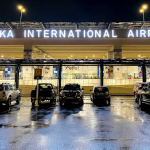Fuel remains one of the highest recurring expenses for logistics and transportation businesses in Nigeria. With fluctuating fuel prices and route inefficiencies, fleet operators are turning to fuel management systems to optimize fuel usage and reduce operational costs. This guide explores what fleet fuel management systems are, their benefits, and how Travo.ng supports logistics providers in implementing them.
What is a Fleet Fuel Management System?
A fleet fuel management system is a digital tool that monitors, records, and analyzes fuel consumption across a company’s fleet. It integrates with vehicle telematics to track:
- Fuel purchase history
- Real-time fuel levels
- Consumption trends per vehicle
- Driver behavior affecting fuel usage
- Fuel theft or unauthorized use
These systems offer actionable insights to reduce waste, improve planning, and increase fleet efficiency.
Why Fuel Management is Crucial in Nigeria
- High Fuel Costs: Prices vary by state, with spikes affecting delivery pricing.
- Fuel Theft: A common issue in haulage and delivery operations.
- Maintenance Costs: Poor fuel management leads to engine strain and higher repair costs.
- Inefficient Routing: Results in higher fuel consumption and delivery delays.
Key Features of a Fuel Management System
- GPS & Telematics Integration
- Automated Fuel Reports
- Fuel Card Management
- Real-Time Fuel Level Alerts
- Route & Driving Behavior Analysis
Benefits for Logistics and Delivery Businesses
- Cost Savings: Minimize fuel wastage and reduce monthly expenses
- Improved Transparency: Track every litre of fuel used per trip
- Better Route Planning: Integrate with GPS for optimized delivery
- Enhanced Security: Detect and prevent fuel siphoning or fraud
- Environmental Compliance: Monitor emissions and reduce carbon footprint
How Travo.ng Supports Fuel Management
Travo.ng partners with logistics companies across Nigeria to:
- Integrate advanced fuel tracking with delivery scheduling tools
- Provide real-time fleet monitoring dashboards
- Offer analytics to help logistics businesses reduce fuel usage
- Enable smart dispatching that prioritizes fuel-efficient routes
Whether you’re operating motorbikes in Lagos or heavy-duty trucks across states, Travo.ng ensures fuel is no longer a hidden cost but a controllable factor in your logistics strategy.
Final Thoughts
Fleet fuel management systems are no longer optional—they are essential tools for sustainable, cost-effective logistics in Nigeria. With solutions like Travo.ng, fleet operators can gain visibility, reduce fuel spend, and deliver with confidence in a competitive market.







